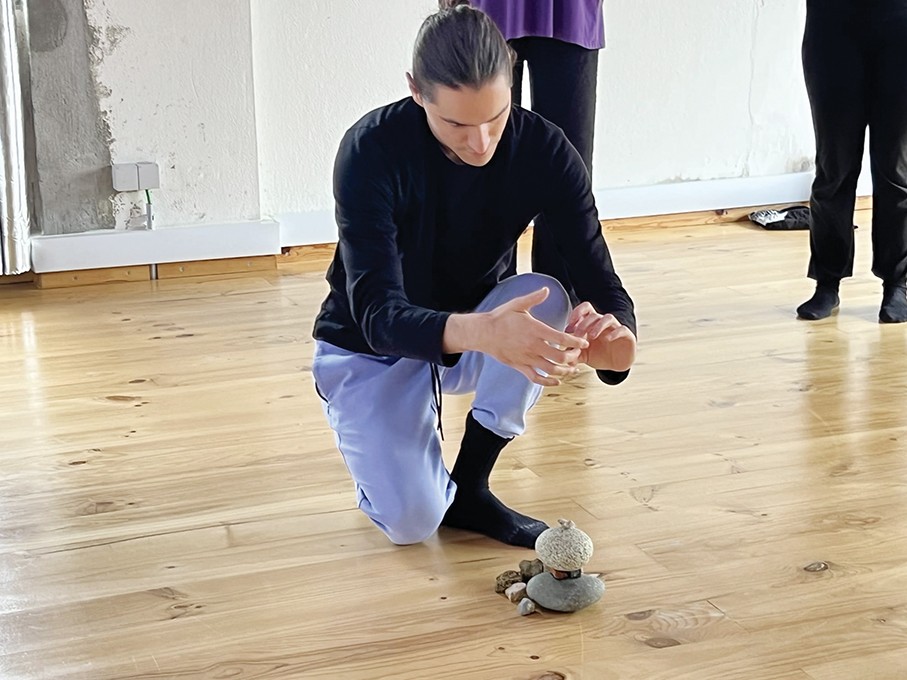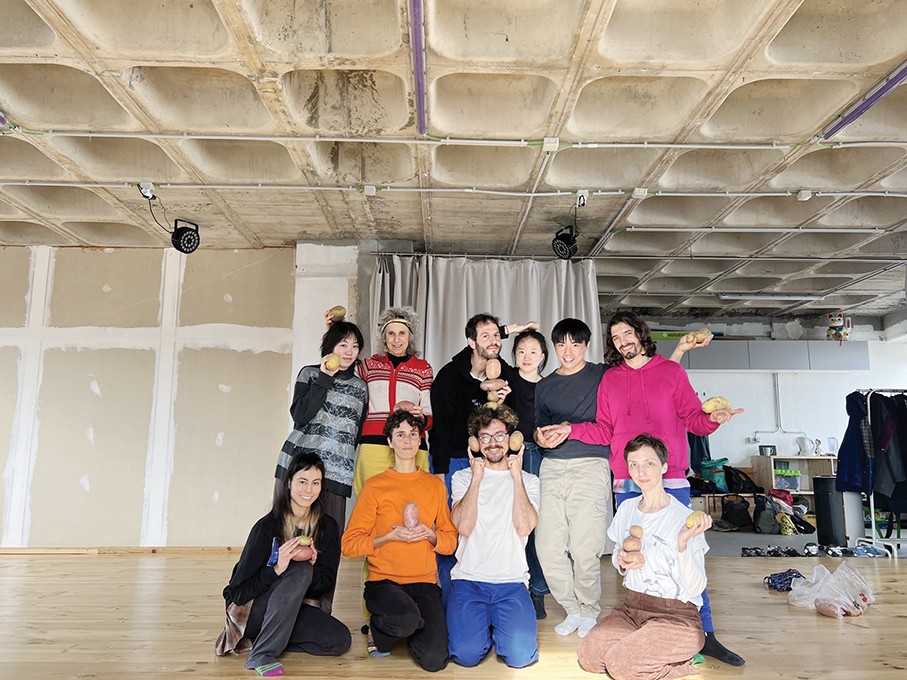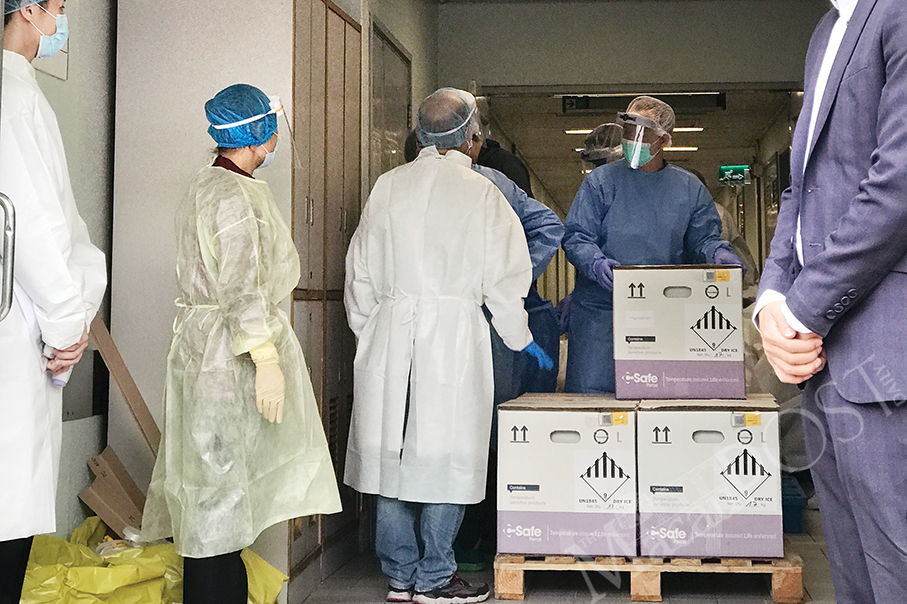Interview by William Chan
Early this year, Macau’s T Theatre and Portugal’s PARASITA art association collaborated on an innovative art exchange initiative called “Next Step” in Lisbon. The programme, held between late January and early February in Espaço Parasita in Lisbon, brought together artistes from China and Portugal to foster cross-cultural dialogue and explore new approaches to dance and bodily practices.
Guo Rui, representing T Theatre, and João dos Santos Martins from PARASITA, told the Post about this unique collaboration in an online interview.
Cultivating research-driven artistic practice
Guo underlined that Next Step’s core vision is to promote a research-driven approach to artistic practice. “We focus on self-organised study, cross-cultural dialogue, and process-orientated artistic development,” he explained, adding: “By bringing together diverse perspectives and experiences, we aim to generate new knowledge and methodologies.”
According to Guo, the choice to partner with a European institution was deliberate, given Europe’s rich artistic traditions and Macau’s historical ties to Portugal. PARASITA, a nonprofit in Lisbon funded by Portugal’s Ministry of Culture, aligned perfectly with Next Step’s values of experimentation and critical discourse.
Breaking down cultural barriers
While acknowledging the distinct cultural landscapes of each location, Guo stressed the importance of finding shared commonalities. “Our goal isn’t to highlight differences, but to explore how dance and bodily practices can create connections across individuals, cultures, and traditions,” he said.
The exchange revealed how different cultural environments shape artistic perspectives. Guo said that for him the particularly eye-opening experience came through the engagement with Access Art* – art created by and with disabled artistes. “In China, this field often focuses on inclusion and assistance. However, in Portugal, they adopted a more radical approach that challenged traditional dance structures and questioned which bodies are considered ‘danceable’,” Guo noted.
Expanding horizons
Next Step is a multi-phase programme, with events planned in Macau, Lisbon, and mainland China throughout 2025. The Post interviewed and reviewed Guo’s performance “Next Step 2024”**. Guo aims to broaden community engagement in future phases, reaching out to students, local communities, and neurodivergent*** artistes.
Inspired by their experiences in Portugal, Guo is also considering new formats for residencies. “We’re exploring how material objects, like architecture, can inform artistic practice,” he explained. “I’m thinking about integrating research-based city explorations into our programme to understand how culture is embodied and transformed over time.”
Shared concerns, unique approaches
Martins views his role in the event as both curator and host. “Success for me means fostering an ecosystem of relationships and interdependencies,” he said. “I support artistes in their research, encourage critical dialogue, and create opportunities for their work to be contextualised and shared with others.”
Martins noted that while Portugal has strong artistic connections within Europe and with Portuguese-speaking countries, exchanges with East Asian contemporary dance scenes are relatively rare. This makes cross-cultural collaborations like Next Step particularly valuable.
“These exchanges introduce diverse ways of thinking, making, and experiencing art,” Martins noted. “The goal isn’t globalisation in the sense of homogenisation, but understanding how artistic practices are shaped by cultural and lived experiences.”
Both curators noted they observed that contemporary artistes often share similar ethical and aesthetic concerns, regardless of their cultural background. Many explore themes like environmental crises, social injustice, and the relationship between memory and ancestry.
However, they underlined that cultural contexts influence how these themes are approached and expressed. “This is where cross-cultural exchanges become particularly rich,” Martins noted. “They reveal different ways of seeing, interpreting, and engaging with the world.”
Challenges and rewards
Organising an international residency presented unique challenges for PARASITA, particularly in creating context for these encounters outside of established festivals or institutions. “This challenge is also what makes it exciting,” Martins said. “It opens up space to rethink artistic practices and build unexpected connections.”
Through initiatives like Next Step, artistes from different corners of the world can come together, share their unique perspectives, and contribute to a richer, more diverse global artistic landscape, Martins said.
Guo highlighted that the upcoming Next Step: China Residency will take place in Guangzhou and Macau separately in June. This residency again aims to further promote dialogue between artistes from these two cultures through research, practice, workshops, and presentations.
*Access Art refers to initiatives, programmes, and practices designed to make art more available and inclusive to diverse audiences, including people with disabilities, marginalised communities, and those who face economic or social barriers. – DeepSeek
**www.macaupostdaily.com/news/23005
*** “Neurodivergent” refers to individuals whose brain functions, learning styles, and cognitive processing differ from what is considered neurotypical. Neurodivergence is not a disorder, but a natural variation in human neurology.
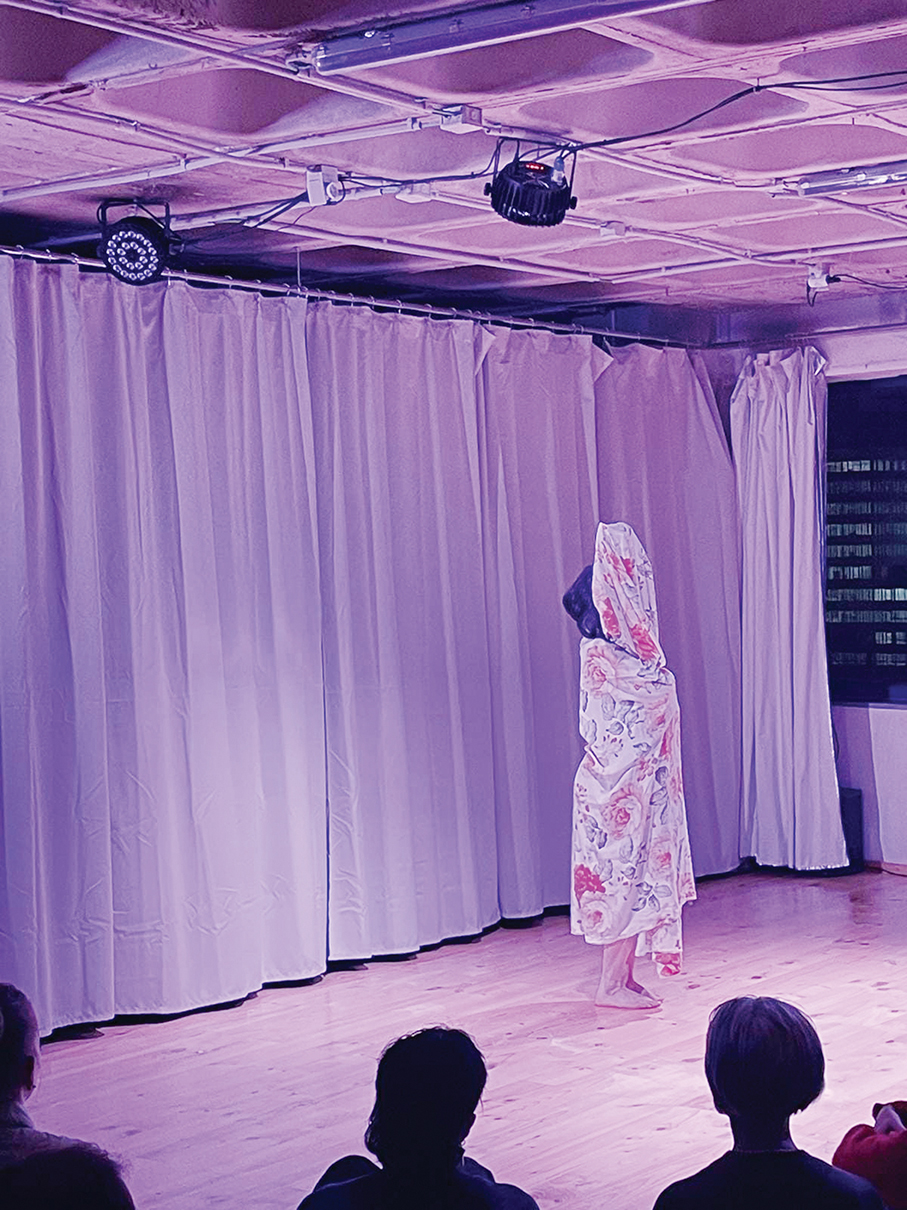
Guangzhou-based artist Wu Hui performs during the final presentation of Next Step in Lisbon earlier this year.
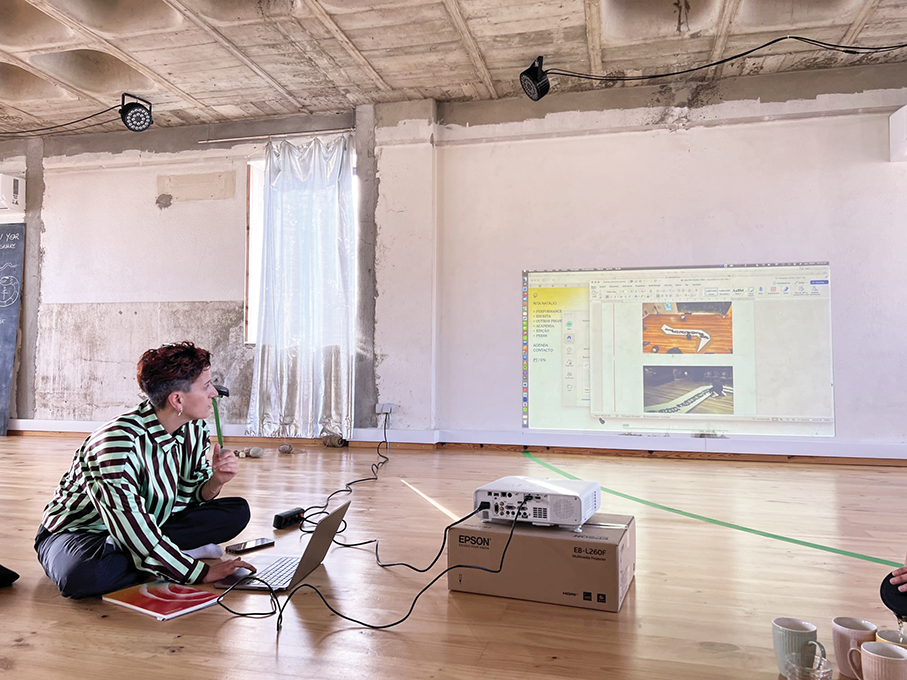
PARASITA artist Ritó Natálio presents their work during a session earlier this year at Espaço Parasita. – All photos provided by PARASITA
